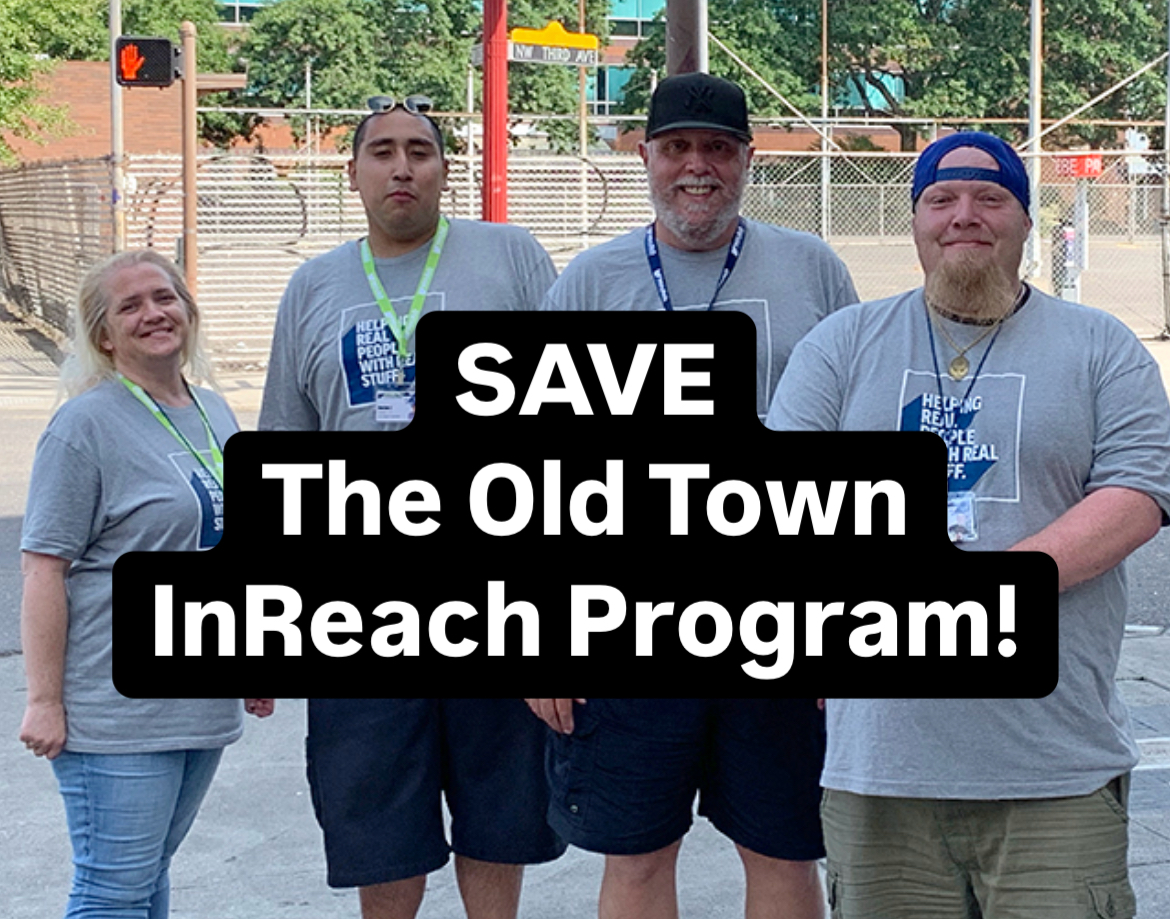Blanchet House Leadership Testimony to Save Old Town InReach Program
By Scott Kerman, Blanchet House Executive Director
06/12/2025
I respectfully encourage Multnomah County Commissioners to reinstate funding for the Old Town InReach Program (OTIP). OTIP is a fiscal bargain relative to the impact it provides on services provided at Blanchet House, LiftUP, Rose Haven, and William Temple House. Each day, two-person teams of qualified peer support specialists assist over 1,000 individuals seeking assistance at these agencies. Many of these individuals struggle with significant mental and behavioral health crises, substance use disorder, physical illnesses, injuries, disabilities, and the trauma experienced from houselessness. OTIP serves a diverse community that includes unsheltered and sheltered individuals, with the latter receiving essential support that helps them stabilize in their shelter or housing.
The key difference between OTIP and outreach/response services is that OTIP teams are stationed at the participating agencies ONLY when the agencies are engaging in services. And by rotating among the agencies, the OTIP teams are well-positioned to provide a high level of continuity of care and relationship building for clients who access services at more than one OTIP agency. Because OTIP teams are experts at de-escalating crises, there is less cause to seek assistance from PPB, PSR, and other emergency services that are already strained by overwhelming community needs.
Since launching in 2021, the Old Town InReach Program has proven its value. One of the strongest indicators of its success is how the model has been adopted by private businesses and government agencies. Peer support specialists are now embedded at various sites where they assist staff, patrons, and customers, often reducing the need for private security and limiting reliance on police or emergency services.
OTIP peers are experts at connecting people to shelter, housing, treatment, medical care, and a host of other resources and services offered throughout the community. More than simple navigation, OTIP teams make appointments for people, arrange transportation, provide follow-up, and even offer their phone number so that clients can reach them if they run into complications. Often, connecting someone with shelter, treatment, or other resources takes time. OTIP teams are uniquely positioned to meet clients throughout the day at OTIP agencies or to tell a client to “meet me again tomorrow at [agency] so we can continue this effort.” I’ve witnessed time and time again how when a treatment bed is available the next day or the next day after that, the OTIP team will stay in close contact with the client and arrange for the client to return to the OTIP agency on the day in question, often with a taxi cab waiting to take the client to where they need to go.
OTIP agencies are well aware that, due to budget constraints, our community is unfortunately facing a number of changes to and elimination of essential services. I suggest that this unfortunate scenario speaks volumes for saving OTIP. It is going to be much harder for individuals to successfully navigate a changed service environment. It’s already confusing enough, and resources like 211 often can’t keep up with changing service schedules, service interruptions, etc. But OTIP teams can and do, and they often save persons from taking valuable time and effort going to other agencies, only to find that they are closed or the hours have changed, etc. Imagine how much more valuable this kind of one-to-one, real-time navigation service provided by OTIP will be in the coming year.
The staff and volunteers at the OTIP agencies, as remarkable as they are, cannot supplement or replace what OTIP peer teams provide. The need to too great for even the heroes on our staff to keep up with. It is without exaggeration that the loss of OTIP will be profound. The impact on these agencies, their services, and the people served will be significant and for the worse. All the more so because we fully expect that demand for our services over the coming year will significantly increase as people in our community feel the devastating impacts to their SNAP benefits, Medicaid benefits, federal housing subsidies and assistance, and other reductions of service due to federal action and local budget impacts.
I’ll close with this: We understand that public funding can’t come with long-term guarantees. But a one-year commitment to OTIP would give the partner agencies a critical window to explore sustainable alternatives. Right now, the chances of a private donor stepping in to save this program are slim. We are asking you, our Multnomah County Commissioners, to be the ones who make that miracle possible. Because on July 1, our OTIP teams need to be where they have always been, on the sidewalks, at doorways, in food pantries, community centers, and cafes, meeting people where they are, when they need it most.


















